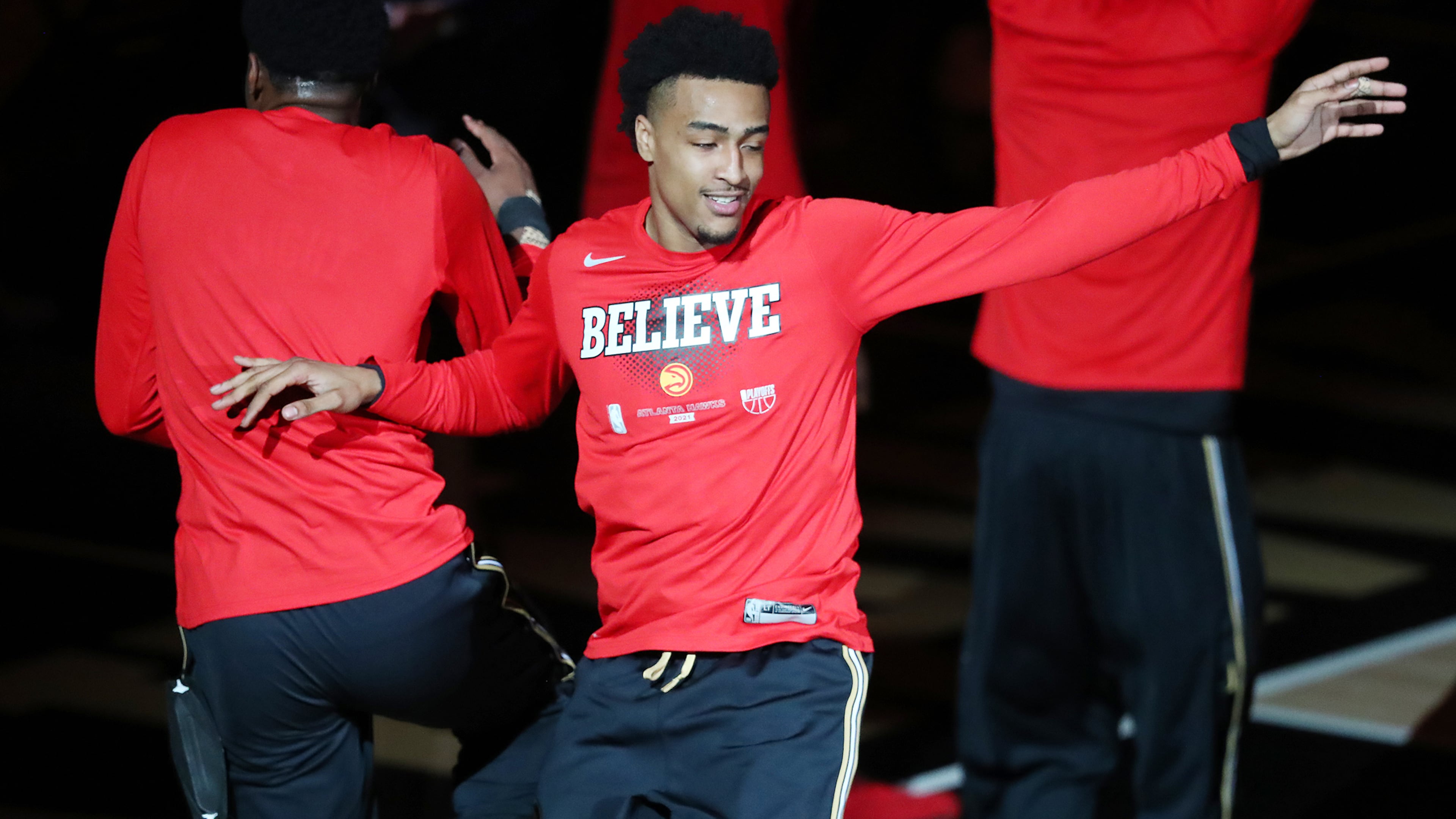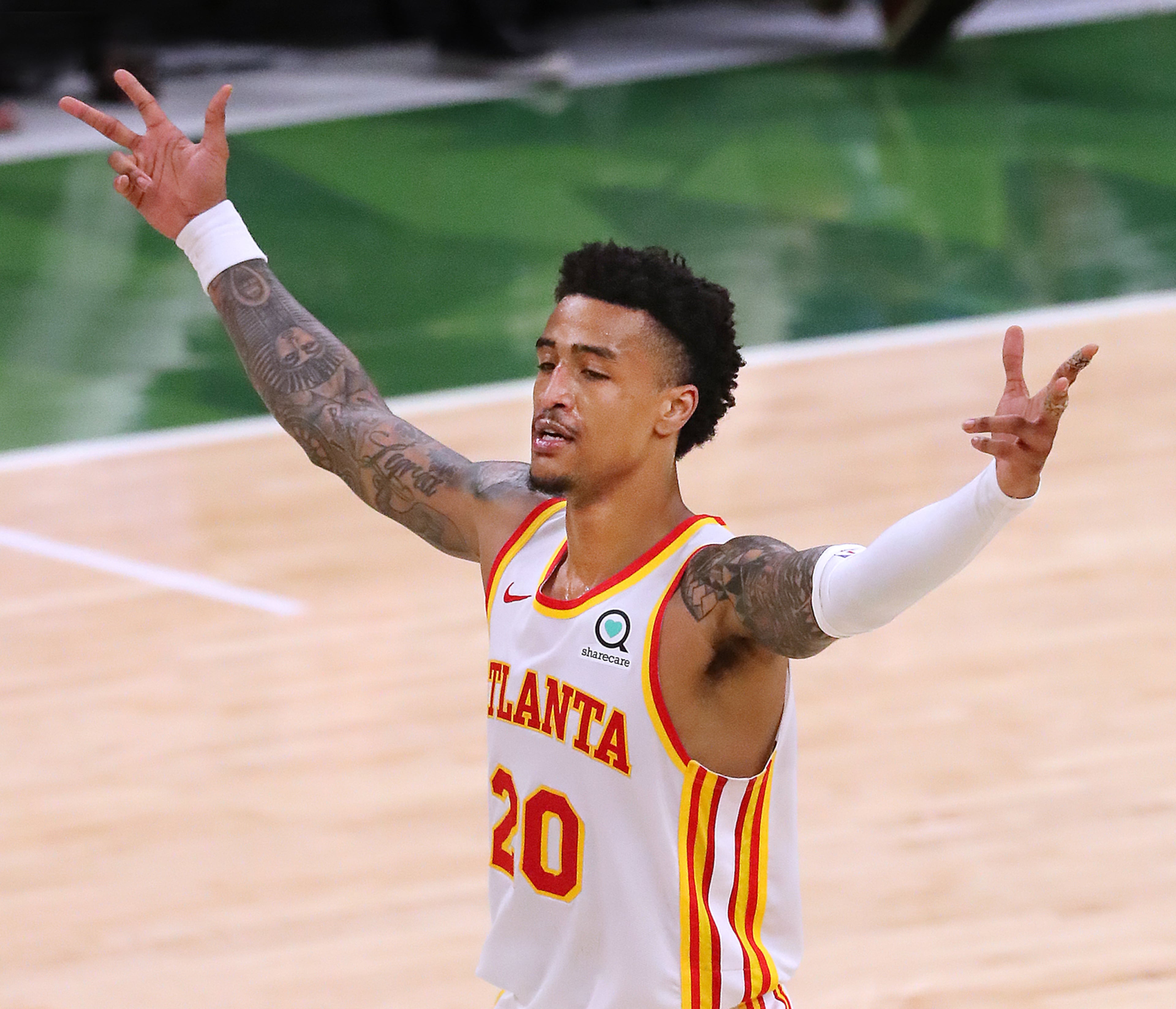Keeping John Collins might not be the Hawks’ best move






It was 1989. The Hawks were coming off a hugely disappointing season. Having geared up for a title run by trading for Reggie Theus and signing Moses Malone, the Hawks won 50 games despite never quite meshing. Their Round 1 loss to undermanned Milwaukee was downright awful.
Jon Koncak, backup center, became a free agent in July. Word came that he was close to signing with Detroit. This correspondent called him and said, “For how much?” He said $2.5 million, which was a ton of money in those olden days. Meaning no offense but possibly inflicting some, I asked, “Um, is that a multiyear thing?”
Said Koncak, barely believing it himself: “Dude, it’s ONE YEAR.”
At that moment, Detroit was seen as the Hawks’ biggest rival, although the Pistons had found bigger fish to fry. Coming off an NBA title, they were about to lose the charmer Rick Mahorn to free agency. They saw Koncak – drafted by the Hawks in Round 1 in 1985, he’d been a career understudy to Tree Rollins and Malone – as a replacement. They also knew $2.5 million was a big fat poison pill. If the Hawks didn’t match, they’d lose a rotational player to the team they despised. If they matched, Koncak would earn more in salary in 1989-90 than Michael Jordan made in 1988-89.
The Hawks didn’t just match. They gave Koncak a six-year deal at $13.2 million. Instantly and forever, he became known as Jon Contract. Their position: You can’t let an asset leave and get nothing back. They kept Koncak and missed the playoffs in 1990. Mike Fratello stepped aside as coach, to be replaced by Bob Weiss, who lasted three seasons. Koncak would see out those six seasons as Hawk, never averaging more than 4.2 points or 4.2 rebounds. He couldn’t help it if he was lucky.
John Collins is not Jon Koncak. Collins is a fine player – he has averaged 16.6 points and 8.4 rebounds over four seasons – and was one of the reasons these Hawks came within two victories of the NBA Finals. Last winter, Collins declined the Hawks’ re-up offer of $90 million over four seasons. He wants a max contract, which could top $100 million. Can’t blame him for that.
John Collins stats
Front offices are at their most vulnerable after experiencing the first blush of success. Just like fans, cold-blooded executives want to keep the good times rolling. In a meeting with AJC writers and editors the day he took ownership of the Hawks, Tony Ressler said of his desire to keep Mike Budenholzer as coach/president and Wes Wilcox as general manager: “I want what’s working, and what’s working is Bud and Wes.”
Sitting a few feet away, I cringed inwardly. (If I cringed outwardly, I apologize.) Budenholzer and Wilcox assumed control during Danny Ferry’s leave of absence, which came after he read an unflattering description of free agent Luol Deng on a conference call. It would have been awkward had the new administration’s first move been to return Ferry – who’d been cleared of racist intent by an outside investigation – to GM duty. Still, what Ressler seemed not to grasp was that the 60-win team he inherited almost entirely was of Ferry’s design.
The tandem of Bud/Wilcox lasted two more seasons. Travis Schlenk is the GM now. He has worked wonders. In a Zoom call with reporters Monday, he expressed his desire to keep Collins but hedged by saying: “We project to be a team that’s over the cap the next few years. … Once those salaries (on the existing payroll) start adding up, you’re really limited in ways to improve your team.”
Ressler did his own Zoom on Tuesday. Here was the money quote, pun intended: “I’m not sure we’re going to be able to keep every single player that we want to keep. (It’s a) pretty good bet we will not.”

Is Collins a player the Hawks want to keep? Yes. Is he worth $100-plus million? Unclear. The trouble with building through the draft is that, even (and especially) if you do it as well as Schlenk has, you must choose which good young players are essential. Trae Young: essential. Collins: maybe not.
Should Collins leave, the Hawks have cover. De’Andre Hunter and Cam Reddish entered the NBA two years after Collins. Both are 6-foot-8. (Collins is 6-9.) Both are good enough to start on a winning team. There’s also Oneyka Okongwu, who’s also 6-8 but more of an interior presence than Hunter/Reddish. Collins is 23. Of the six Hawks who are younger, all but Bruno Fernando were Round 1 picks. Four were lottery picks.
Should Collins sign elsewhere for a sum the Hawks aren’t willing to match, they’ll try to work a sign-and-trade. That would leave them with something, though the club’s big picture would remain essentially the same. It’s not that Collins isn’t a good player; it’s that not all good players are indispensable.
Rick Sund’s first major decision after succeeding Billy Knight as GM in 2008 was not to retain sixth-man Josh Childress, who’d helped the 37-45 Hawks take No. 1-seed Boston to seven games in Round 1. After Childress signed with Olympiacos of Greece, yours truly hopped on a teleconference to ask, in high dudgeon: “Rick, how could you let this happen?”
To his credit, Sund gave a professional answer: Having studied the team he’d inherited, he didn’t believe Childress was worth what he was asking. Sund, we say belatedly for the record, was right. Childress would return to the NBA, but he never worked another playoff series. The next summer, Sund landed Jamal Crawford for Speedy Claxton and Acie Law. With Crawford aboard, the Hawks won 53 games in 2009-10; he was voted the NBA’s best sixth man.
The examples of Koncak, whom the Hawks kept, and Childress, whom they didn’t, served to educate this correspondent. An NBA team cannot afford multiple max deals. In consecutive drafts, Oklahoma City (nee Seattle) took Kevin Durant, Russell Westbrook and James Harden. All would win MVP awards. Harden’s came with Houston.
Six seasons after buying the Hawks, Ressler has come to know the business. If you pay Collins $100 million, how much will Young want? What of Clint Capela, who’s 27 and due $35.3 million over the next two seasons? (As adroitly as Schlenk has played the draft, the trade for Capela is his magnum opus.) What of Kevin Huerter? What of Hunter and Reddish and maybe Okongwu?
Building a good young team is difficult. Keeping it intact is impossible. It wouldn’t be the worst thing in the world if the Hawks kept Collins. It might not be the best, either.

